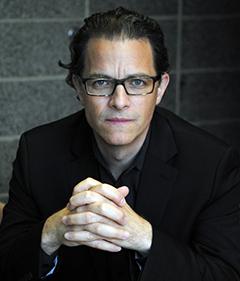11th Circuit Sends Long-Running Capital Case Back for Further Review
Columbia Law School Professor Bernard Harcourt Represents a Man Who Spent 26 Years on Death Row and Now Challenges His Life Without Parole Sentence
New York, July 17, 2015—A man who spent 26 years on death row whose conviction has been reversed three times will have another chance to argue that his latest sentence of life imprisonment without the possibility of parole violates the Alabama and U.S. constitutions, an 11th U.S. Court of Appeals panel has held.
| Professor Bernard E. Harcourt has represented capital defendant Phillip Tomlin since 1990. |
“The Eleventh Circuit’s per curiam opinion is a first step in the right direction,” said Columbia Law School Professor Bernard E. Harcourt, who first represented defendant Phillip Wayne Tomlin in 1990. “By sending this habeas corpus case back to the District Court in Mobile, we may finally have a full opportunity to unwind some of the judicial fictions that the Alabama Supreme Court webbed around the old Alabama death penalty statute.”
Tomlin’s case is an example of a peculiar feature of Alabama law called “judicial override.” In 1977, Tomlin was charged and convicted of double intentional murder under the 1975 Alabama Death Penalty Act, which, at the time of his sentencing, required juries to sentence someone to death upon conviction. After a U.S. Supreme Court decision striking down mandatory death penalty statutes, the Alabama Supreme Court rewrote the statute to allow jurors to return a sentence of life without parole under the law. A few years later, the Alabama Supreme Court rewrote the statute again to allow for upward judicial override and the imposition of a death sentence despite a jury verdict of life without parole.
After his original conviction was reversed for prosecutorial misconduct, Tomlin received the benefit of a unanimous jury verdict for life without parole at three subsequent sentencing trials. Each time, a state judge overrode the jurors’ unanimous decision, sentencing Tomlin to death instead. After Tomlin’s final conviction (the second and third convictions were reversed for prosecutorial and juror misconduct), the Alabama Supreme Court reduced his sentence to life without parole.
Harcourt represented Tomlin in his appeal at the Eleventh Circuit last year, arguing the sentence violates the ex post facto principle of fair notice inherent in the due process clause. Harcourt argued that—at the time of the murders and Tomlin’s original conviction—the 1975 Alabama Death Penalty Act did not include double intentional murder as an aggravating circumstance that would have made him eligible for the death penalty. Instead, Tomlin should have been charged with two counts of first-degree murder, crimes that are eligible for life imprisonment with the possibility of parole, Harcourt argued.
Harcourt’s brief emphasized the unfairness of the result in Tomlin’s case.
“If Mr. Tomlin’s sentence of life imprisonment without parole is legal, then a defendant in his situation can be charged with a capital offense and sentenced to death by a jury, even though he could never be sentenced to death by a court of law,” he wrote. “That would be an incoherent result.”
On Thursday, July 16, an 11th Circuit panel held that the lower court in Tomlin’s case had failed to properly consider Tomlin’s fair notice claim. The decision sends the case back to the Southern District of Alabama in Mobile, Alabama, for the issue to be addressed.
“Phil Tomlin’s seemingly eternal case reflects the long and tortured history of the old Alabama death penalty statute, which the Alabama Supreme Court has mysteriously redrafted on at least five occasions to ensure that executions go on in the state,” said Harcourt. “It is really a case study in judicial overreaching.”
Harcourt is Isidor and Seville Sulzbacher Professor of Law and director of the Columbia Center for Contemporary Critical Thought. The Tomlin case is one of several the center works on as part of its practical engagement curriculum. A number of Columbia Law School students have worked on Tomlin’s case, including Michael H. Cassel ’16, Joanna D. Caytas ’17, Daniel M. Kelly ’17, Luke M. Reilly ’17, Morgan E. Saunders ’17, Hannah D. Schechter ’17, Marco Wong ’16, and the members of Harcourt’s Fall 2014 Legal Methods class.
Harcourt’s scholarship intersects social and political theory, the sociology of punishment, and penal law and procedure. Earlier in his career, he worked as an attorney at the Equal Justice Initiative in Montgomery, Alabama, representing death row inmates; he continues that representation on a pro bono basis.
